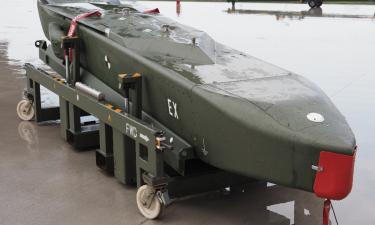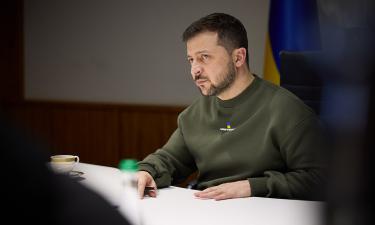West meets East
The agenda of NATO's latest summit was East-oriented not just because of its venue-the Turkish city of Istanbul, spanning the European continent and Asia.
Careful examination of the Istanbul communique and other documents adopted at the summit will show that of the ten decisions listed, six are directly or indirectly related to the Moslem world. Initially planned as a celebration of NATO's European expansion, the forum, unexpectedly to many, turned into a West-Meets-East affair. But it seems like Europe's security cannot be ensured these days without restoring stability to Iraq, Afghanistan, and the greater Middle East.
The NATO gathering made decision to reinforce the International Security Assistance Force (ISAF) for Afghanistan and pledged help for Iraq's newly-appointed interim sovereign government in security personnel training. Looking from Istanbul, the handover of power to the Iraqi authority two days ahead of schedule looks like a gift, however equivocal, for the attending NATO leaders.
The summit also reminded to Albania, Croatia and Macedonia, whose populations are predominantly Moslem, that they would soon become part of the trans-Atlantic alliance.
NATO decided to suspend operations in Bosnia, handing its mandate over to the European Union. The carefully worded communique suggests that NATO did not do enough to prevent the outbreak of anti-Serb violence in Kosovo this past March.
Bosnia and Kosovo are among NATO's few intra-European concerns now, with the focus shifting to the Middle East. The Istanbul Cooperation Initiative adopted at the alliance's most recent summit echoes the Greater Middle East initiative from U.S. President George W. Bush.
It is not likely that NATO's efforts to build partnerships with Mideastern nations will encounter skepticism on the part of Russia. In a speech at a Russia-NATO Council session, Foreign Minister Sergei Lavrov pointed out that Russia-NATO dialogue had become much more intensive since the Council's establishment two years ago, as recent developments in Iraq, Afghanistan, and in the Balkans had demonstrated that in the modern-day-world, nations cannot ensure their security single-handedly, without interacting with the global community.
In reply to this correspondent's question as to whether he likes an East-looking NATO, Mr. Lavrov answered "yes" without any hesitation. He then went on to suggest specific terms and principles for Moscow-Brussels cooperation in the area. The minister also cautioned against repeating old mistakes by trying to solve all security problems with military force.
At the Russia-NATO Council's Istanbul session, Lavrov spoke of options for cooperation between NATO and the CSTO (Russia, Belarus, Kazakhstan, Kyrgyzstan, Tajikistan and Armenia) in countering modern-day threats to global security. As a matter of fact, everything said by the minister at the Council session signaled Russia's willingness to cooperate with NATO in coping with global challenges, most of which originate from regions east and south of Istanbul.
© &to=http://www.rian.ru' target=_blank>RIAN
Early reports by "PRAVDA.Ru":
&to=http://english.pravda.ru/printed.html?news_id=13006' target=_blank>Putin ignores NATO summit
&to=http://english.pravda.ru/printed.html?news_id=12962' target=_blank>Russia must comply
Subscribe to Pravda.Ru Telegram channel, Facebook, RSS!





